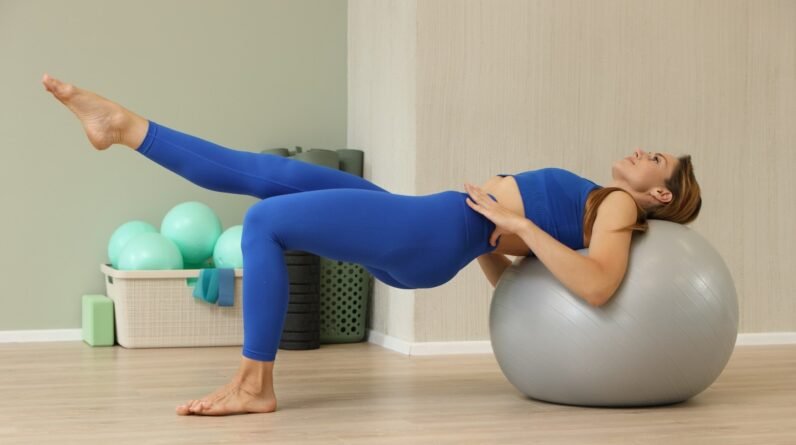
High blood pressure, also known as hypertension, is a significant health concern. Engaging in physical activities can help control it. You can go for Tai Chi to reduce blood pressure.
Want to maintain good cardiovascular health? Then it is important to focus on your blood pressure, which is a vital indicator of your overall health, including your heart. It is a measure of how forcefully your blood pushes against the walls of your arteries as your heart pumps it throughout your body. This pressure is necessary to ensure that oxygen and nutrients reach all parts of the body. High blood pressure (hypertension) can damage arteries and lead to serious health problems such as heart disease, stroke, kidney damage, and vision loss. You can go for a Chinese martial art to control your blood pressure. Try Tai Chi to reduce blood pressure, as it may turn out to be more effective than aerobic exercise.
What can happen if blood pressure is high?
Blood pressure is measured using top and bottom numbers:
- The top number or systolic pressure helps to measure the pressure in the arteries when the heart beats.
- Diastolic pressure or the bottom number is to know the pressure in the arteries when the heart is resting between the beats.

Blood pressure is categorised into different ranges to help determine the level of risk. According to the National Heart, Lung, and Blood Institute, normal is when it is less than 120/80 millimeters of mercury (mmHg), and high is when the systolic pressure is between 120-129 mmHg and diastolic less than 80 mmHg. “Anything above 120/80 mmHg is a signal that blood pressure is higher than normal and may need to be monitored or managed to prevent complications,” says cardiologist Dr Abhijit Borse.
High blood pressure puts more strain on your blood vessels as well as the heart. Over time, this can cause damage to the circulatory system and other vital organs, leading to serious health problems:
You may also like


1. Heart disease and heart failure
Hypertension increases the workload on the heart, causing it to thicken and become less efficient. This condition, called left ventricular hypertrophy, can lead to heart failure over time. “Also, high blood pressure can accelerate the build-up of plaque in arteries, contributing to coronary artery disease and increasing the risk of heart attacks,” says the expert.
2. Stroke
Elevated blood pressure is one of the main reasons behind strokes. When blood pressure is elevated, it can weaken the arteries in the brain, increasing the risk of them becoming blocked or bursting, resulting in a stroke that can cause permanent brain damage, disability, or death.
3. Kidney damage
The kidneys are pretty sensitive when it comes to blood pressure changes. Hypertension can damage the small blood vessels in the kidneys, reducing their ability to filter waste from the blood. This can lead to chronic kidney disease or even kidney failure, necessitating dialysis or a kidney transplant.
4. Vision loss
High blood pressure can affect the eyes by impacting the blood vessels in the eyes, and cause hypertensive retinopathy. “Over time, this can cause vision problems or even blindness if not addressed on time,” says Dr Borse.
Tai Chi to reduce blood pressure
Tai chi, a practice that originated in China as an ancient martial art, involves slow and gentle movements. It also focuses on a meditative state of mind as well as controlled breathing, according to the US National Center For Complementary And Integrative Health.
Now many people consider it as a low-impact exercise in which the muscles are relaxed, movements are circular, and the joints are not fully extended, according to the Harvard Health Publishing.
One of its health benefits may be lowering blood pressure. For a February 2024 study published by JAMA Network Open, researchers in China assigned 342 adults with prehypertension and mostly in their late 40s to one of two interventions. Around half of the participants did aerobic exercise, including brisk walking, jogging, and cycling. The rest of the participants were trained to practice Tai Chi. After 12 months, those who practiced Tai Chi saw major drops in their blood pressure than those who did aerobic exercises.
Another study, published in the International Journal of Nursing Studies in 2018, found Tai Chi to be more effective than brisk walking in reducing blood pressure.
“Tai Chi involves slow and flowing movements so the people who are old and face trouble with movements can perform it and it may help them relieve their stress and blood pressure,” says Dr Borse.

What are the ways to lower high blood pressure?
Here are several effective ways to lower blood pressure naturally:
1. DASH diet
The Dietary Approaches to Stop Hypertension (DASH) diet is specifically designed to reduce blood pressure. “It involves eating more vegetables as well as whole grains, lean proteins, fruits, and dairy products with low fat. Eating less sodium, red meat, and sugary foods are also part of the diet,” says the expert.
2. Increase potassium intake
Potassium is essential, as it helps balance sodium levels in the body, and can reduce blood pressure. Consume foods high in potassium, which means bananas, spinach, sweet potatoes, and avocados should be part of your meals.
3. Reduce sodium
Eating too much salt (sodium) can make your body retain fluid, and lead to increased blood pressure. ” Don’t use table salt, and try to eat sodium less than 1500 mg in a day to control blood pressure,” says the expert.
4. Lose excess weight
Carrying extra weight puts additional strain on your heart, increasing the risk of high blood pressure. Losing even a small amount of weight can have a noticeable effect on your blood pressure. You need to focus more on your waistline, as excess fat around the waist (abdominal obesity) is particularly harmful to heart health.
5. Reduce alcohol consumption
Drinking alcohol on special occasions is not a big deal. “But having too much alcohol every day can raise your blood pressure and increase your risk of hypertension,” says the expert. So, just have one drink per day.
6. Manage stress
If stress is chronic, it can contribute to high blood pressure by causing the body to release stress hormones. They temporarily increase heart rate and constrict blood vessels. Over time, these effects can lead to sustained high blood pressure. “Practices such as deep breathing, meditation, and progressive muscle relaxation can help reduce stress and lower blood pressure,” says the expert.
7. Get quality sleep
Poor sleep or sleep disorders, such as sleep apnea, may lead to high blood pressure. “Sleep is the time when the body regulates hormones while maintaining heart health,” says Dr Borse. So, follow a regular sleep routine, avoid screen time before bed, and create a relaxing environment to get a good quality sleep.
Tai Chi may help in lowering blood pressure, but you also need to make lifestyle changes. A healthy diet with less salt and sugar, exercise, and stress management can help to improve your cardiovascular health.







